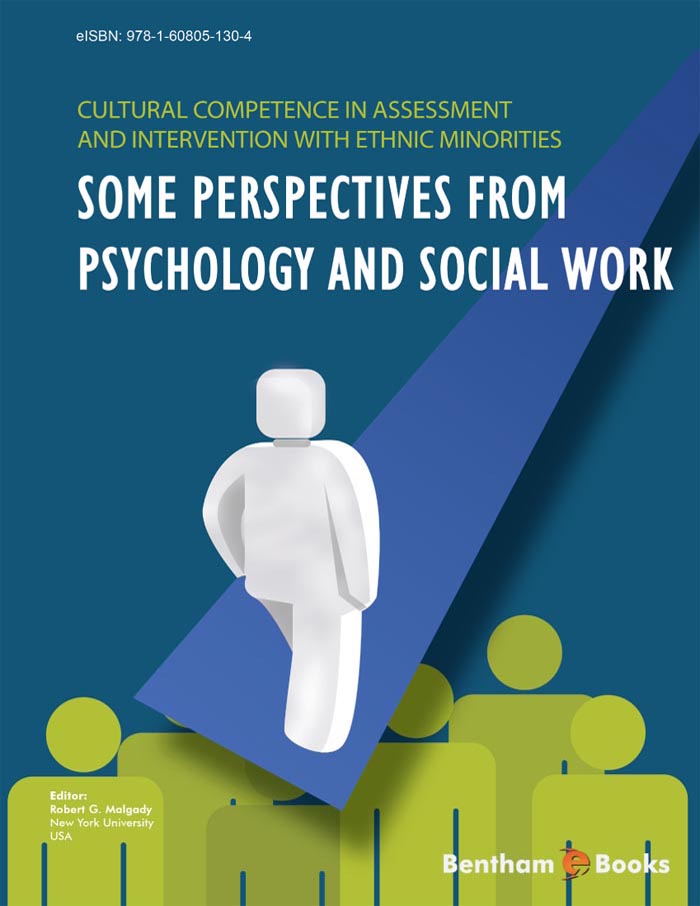Reuben M. Castagno
Professor, Film and Education Research Academy, Columbia University and Department of Psychology, Touro College, New York
"In the midst of the constant noise of our modern world, We need to create sufficient silence to hear ourselves and others"
Fletcher, Sorrell, & Silva
This book is definitely a benchmark in the systematic study of cultural competence in the areas of assessment and intervention with ethnic minorities. Taken together, the chapters in this volume describe the extremely important developments of theory, measurement strategies, and significant findings about the long-term outcomes of research on cultural competence. The contributors to this important volume are critical architects of this area of rigorous research. The new knowledge about the ways and life-course development of cultural competence within the areas of assessment and intervention is paramount in bringing a much better understanding of the complexity on working and providing support to ethnic minorities. The chapters present rich research contributions from different disciplines, methodologies, and perspectives. Each chapter describes a critical piece in the history and development of the field and practice of cultural competence across the areas of psychology and social work.
The stage for understanding cultural competence is set right from the start on the book’s preface as a ‘commitment to diversity in social behavior.’ In the first chapter the author addresses issues related to comprehensive culturally competent assessment. This chapter highlights the need of comprehensive quality assessment and the importance of additional professional training. In chapter two, the researcher puts forward the critical area of bias in psychological measurement. The issue of reliability and valid assessment in psychological testing is presented and analyzed. The author presents the history of the efforts to measure intelligence right from its inception and the current trends in trying to avoid biases by providing appropriate clinical treatment to ethnic minorities. In chapters three and four, the authors captured the importance of multicultural assessment within the scope of TEMAS (Tell-Me-A-Story). The instrument TEMAS was developed from a dynamic-cognitive model integrating elements of cognitive, ego, and interpersonal psychology, with social-cognitive learning theory and narrative psychology. This is a powerful instrument for a new millennium that tries to incorporate our current understanding of the nature of cross-cultural/multicultural assessment.
The subsequent chapters five, six, seven, and eight captures the issues related to cultural competence within the theoretical framework of symbolic violence in assessment, psychotherapy, evidence-based treatment for post World Trade Center trauma symptoms in Latino children, and social work interventions and implications for practice and professional education. In the last two chapters, the book builds and breaks new ground in the conceptualization and practice of cultural competence. The authors provide important research on the effectiveness of mental health treatment of Asian Americans. In the area of mental health treatment for Asian Americans, the author discusses the barriers of treatment as a starting point for moving forward with possible strategies to increase the competency of mental health care. Overall, the chapters articulate important implications of the groundbreaking research and paramount topics described in this book. As researchers, educators, and clinicians from different disciplines study these chapters; new ideas, studies, and commitment to diversity certainly will be launched to further the specific lines of research described in each chapter. It is through these converging possible exploratory commitment to diversity in social behavior that we may be able to create a moment of silence long enough to hear ourselves and respond to others.
REFERENCE
Fletcher, J., Sorrell, J., & Silva, M. (2001). Harming patients in the name of quality of life. In N.Diekelmann (Ed.), Interpretive studies in healthcare and the human sciences: Vol. 1. Power oppression, and violence in healthcare and the human sciences. Madison, WI: University of Wisconsin Press.

